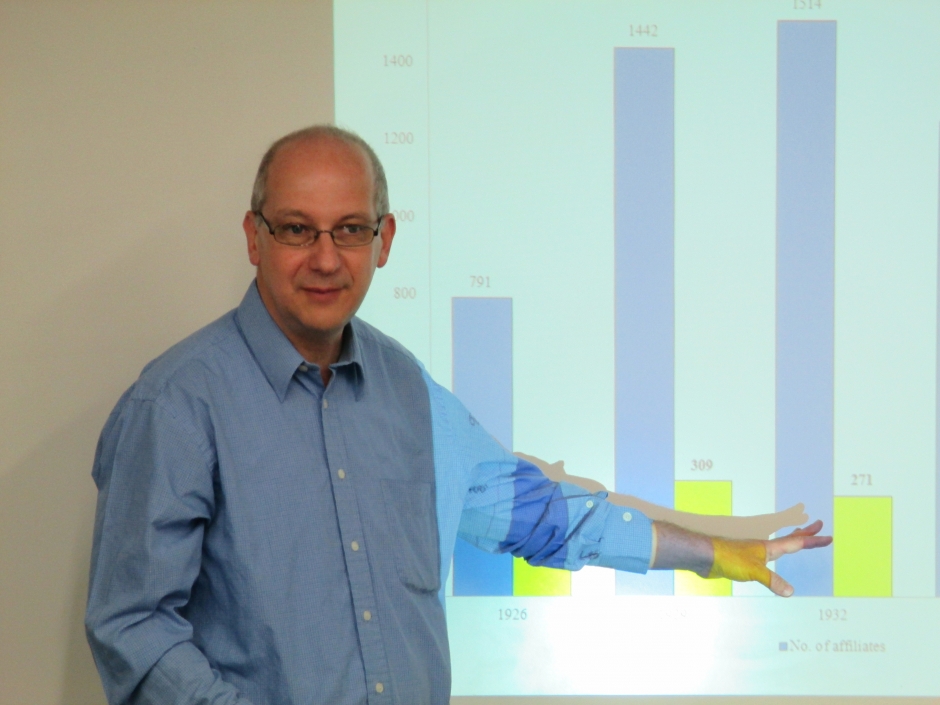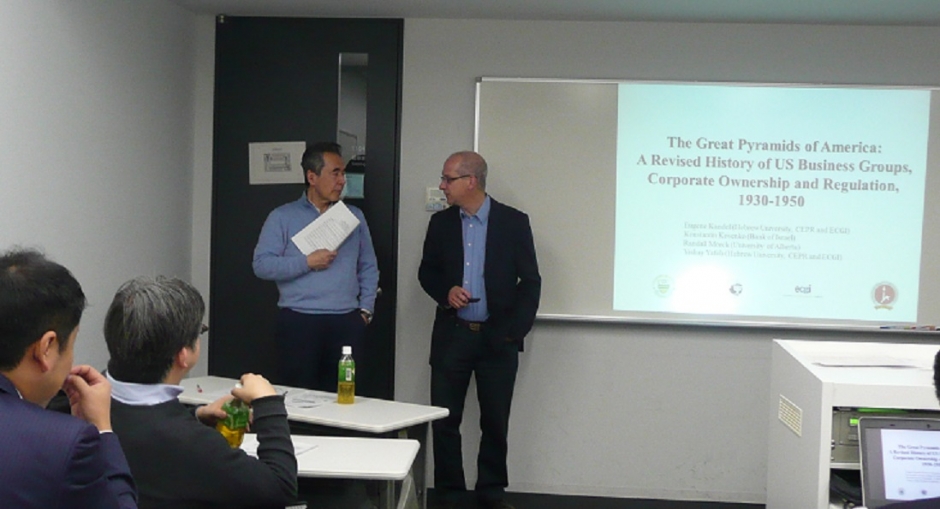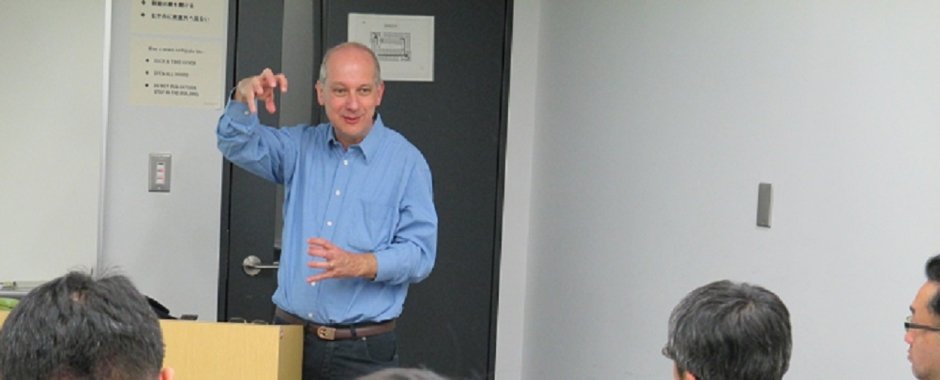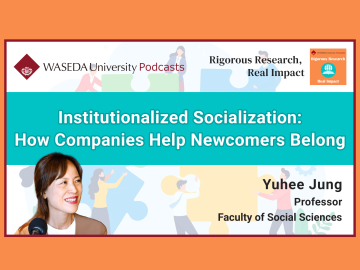On January 25, economist and corporate governance specialist Yishay Yafeh, professor and Dean at Hebrew University’s School of Business Administration, visited Waseda to deliver a lecture to students and faculty members. This workshop was supported by the Top Global University Project Center for Empirical Analysis of Political Economy in collaboration with Waseda’s Research Institute of Business Administration (RIBA) and Institute for Advanced Study (WIAS). The moderator was Waseda Institute for Advanced Study (WIAS) Director, Professor Hideaki Miyajima (Graduate School of Commerce).
In the workshop, Professor Yafeh presented research entitled “The Great Pyramids of America: A Revised History of US Business Groups, Corporate Ownership and Regulation, 1930-1950” coauthored by Eugene Kandel from Hebrew University, Konstantin Kosenko from Bank of Israel and Randall Morck from University of Alberta. The study examines how the present US corporate ownership structure emerged using new, extensive and hand-collected firm-level data. Until the mid-1930s, United States corporate ownership was not different from other countries. Over 50 pyramidal business groups controlled firms in manufacturing, railroad and public utilities. However, in the late 1930s and 1940s, these pyramidal business groups started downsizing and eventually disappeared. The main cause of their disappearance was the main topic of his presentation, which demonstrated how several regulatory measures created incentives to reform corporate ownership. Large listed firms in the United States today are exceptional in the sense that they are neither control nor controlled by other firms.
During the workshop, Professor Yafeh and faculty (Hideaki Miyajima and Shinichi Hirota, Professors at the Graduate School of Commerce, and Nobuhiko Hibara, Associate Professor at Waseda Business School) had a lively exchange of views about research while students listened and took notes. In addition to this workshop, Professor Yafeh conducted four sessions of special lectures as well as three individual guidance sessions for graduate students. Even after the individual guidance sessions, Professor Yafeh was happy to advise students.











